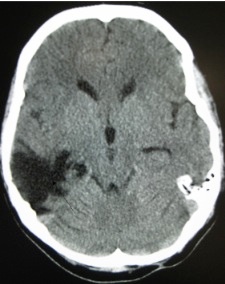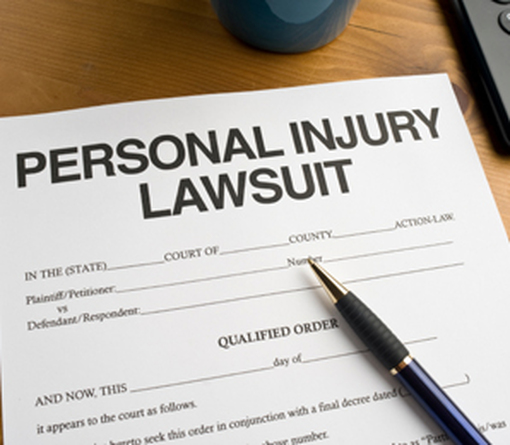Brain Injury Caused By An Accident?
You May Qualify For a Settlement!
Speak With a Local Attorney To Find Out
Please do not call if you have legal representation.
|
Call NOW For A FREE Attorney Referral
In one short call, our trained consultant will discuss your situation and refer you to a qualified Personal Injury Attorney in your area. |
Your Questions Answered
|
What Kinds of Brain Injury Warrant A Personal Injury Claim?

A common and serious injury sometimes caused by an accident is an impact to the head called a traumatic brain injury (TBI).
In a number of these cases, the sufferer believes she or he is aware of the extent of their injuries -- or lack thereof -- until after it is too late and the case is settled. Don't be that person! Learn about the differences in TBI and the symptoms, before hand.
Following a serious injury, it's not impossible that TBI is overlooked -- just to have the signals surface down the road. A TBI can leave a sufferer's life changed - damaging their relationships, work, mental capacity and quality of life after broken bones have mended.
Here are a few hints that will tell you if you're experiencing a traumatic brain injury, and some measures you'll be able to take to protect your rights to damages.
Degrees of TBI Severity
Brain injuries are sorted in to two groups -- severe and moderate.
If loss of consciousness survives for less than half an hour. a traumatic brain injury is considered moderate. Up to 15% of sufferers will experience symptoms for a year or more, although most TBIs are considered moderate.
Moderate TBI
Indications of a moderate TBI include:
Many sufferers of moderate TBI will recover a complete quality of life.
However, those who suffer from a moderate to severe traumatic brain injury will frequently lose consciousness for longer than an hour.
Moderate to Severe TBI
Within days indications of a serious TBI may start to appear:
It's important to understand that the signals of severe TBI may not be instantly obvious. Determination of the severity of brain injury symptoms can develop over several days or even weeks after the occasion.
To be on the conservative side, it's best to speak to your physician if you detect any physical or behavioral changes following a blow to the head. A brain imaging scan or a comprehensive neurological examination will show any damage to the surface of the brain.
The Best Way to Continue with a Personal Injury Claim for a TBI
The effects of brain injuries are far reaching, although often not seen. If you were injured in an automobile accident or other kind of mishap - and think that you just may have sustained a brain injury, it is critical that you keep medical records and document the effects on your daily life, in a journal.
You may need to speak with an injury lawyer, too, because computing the damages (monetary compensation) for these kinds of harms is not easy. You may have to discuss with your lawyer the possible neglect that resulted in your injury, if a personal injury suit may be the right choice, or whether a resolution can be reached.
As with every area of personal injury, you might be able to accumulate financial damages for costs of medical and treatment visits, loss of income, reduced quality of life, and the pain you have endured.
Next Steps
To find out more about your choices for pursuing a personal injury claim, take some time to get educated on the matter. You'll reap the benefits of teaching yourself before you pick to meet with local lawyers about your case.
In a number of these cases, the sufferer believes she or he is aware of the extent of their injuries -- or lack thereof -- until after it is too late and the case is settled. Don't be that person! Learn about the differences in TBI and the symptoms, before hand.
Following a serious injury, it's not impossible that TBI is overlooked -- just to have the signals surface down the road. A TBI can leave a sufferer's life changed - damaging their relationships, work, mental capacity and quality of life after broken bones have mended.
Here are a few hints that will tell you if you're experiencing a traumatic brain injury, and some measures you'll be able to take to protect your rights to damages.
Degrees of TBI Severity
Brain injuries are sorted in to two groups -- severe and moderate.
If loss of consciousness survives for less than half an hour. a traumatic brain injury is considered moderate. Up to 15% of sufferers will experience symptoms for a year or more, although most TBIs are considered moderate.
Moderate TBI
Indications of a moderate TBI include:
- Issues with Coordination
- Excessive sleep or melancholy
- Changes in mood, violent outbursts
- Trouble inventing ideas or sentences, memory loss
- Sensory problems (loss of smell, poor taste in mouth, sensitivity to lights or sound etc)
- Nausea
- Seizures
Many sufferers of moderate TBI will recover a complete quality of life.
However, those who suffer from a moderate to severe traumatic brain injury will frequently lose consciousness for longer than an hour.
Moderate to Severe TBI
Within days indications of a serious TBI may start to appear:
- Clear fluid that drains from ears
- Dilated pupils (one or both eyes)
- Melancholy
- Habitual spells of vomiting or nausea
- Issue talking or walking, confusion
- Combative behaviour, Irritability
- Clear fluid that drains from the nose
It's important to understand that the signals of severe TBI may not be instantly obvious. Determination of the severity of brain injury symptoms can develop over several days or even weeks after the occasion.
To be on the conservative side, it's best to speak to your physician if you detect any physical or behavioral changes following a blow to the head. A brain imaging scan or a comprehensive neurological examination will show any damage to the surface of the brain.
The Best Way to Continue with a Personal Injury Claim for a TBI
The effects of brain injuries are far reaching, although often not seen. If you were injured in an automobile accident or other kind of mishap - and think that you just may have sustained a brain injury, it is critical that you keep medical records and document the effects on your daily life, in a journal.
You may need to speak with an injury lawyer, too, because computing the damages (monetary compensation) for these kinds of harms is not easy. You may have to discuss with your lawyer the possible neglect that resulted in your injury, if a personal injury suit may be the right choice, or whether a resolution can be reached.
As with every area of personal injury, you might be able to accumulate financial damages for costs of medical and treatment visits, loss of income, reduced quality of life, and the pain you have endured.
Next Steps
To find out more about your choices for pursuing a personal injury claim, take some time to get educated on the matter. You'll reap the benefits of teaching yourself before you pick to meet with local lawyers about your case.



